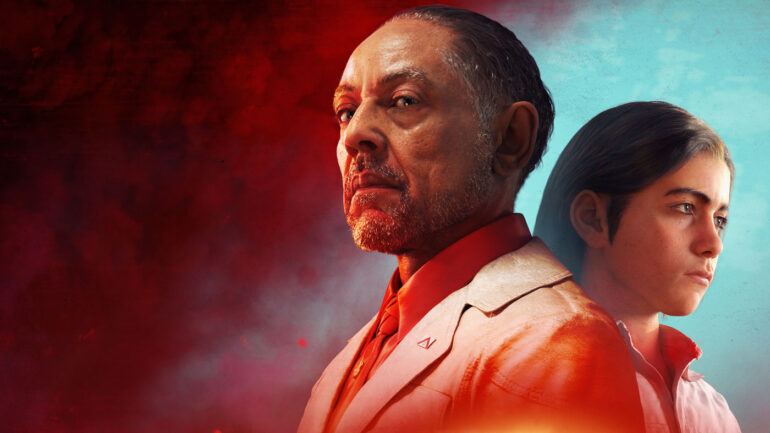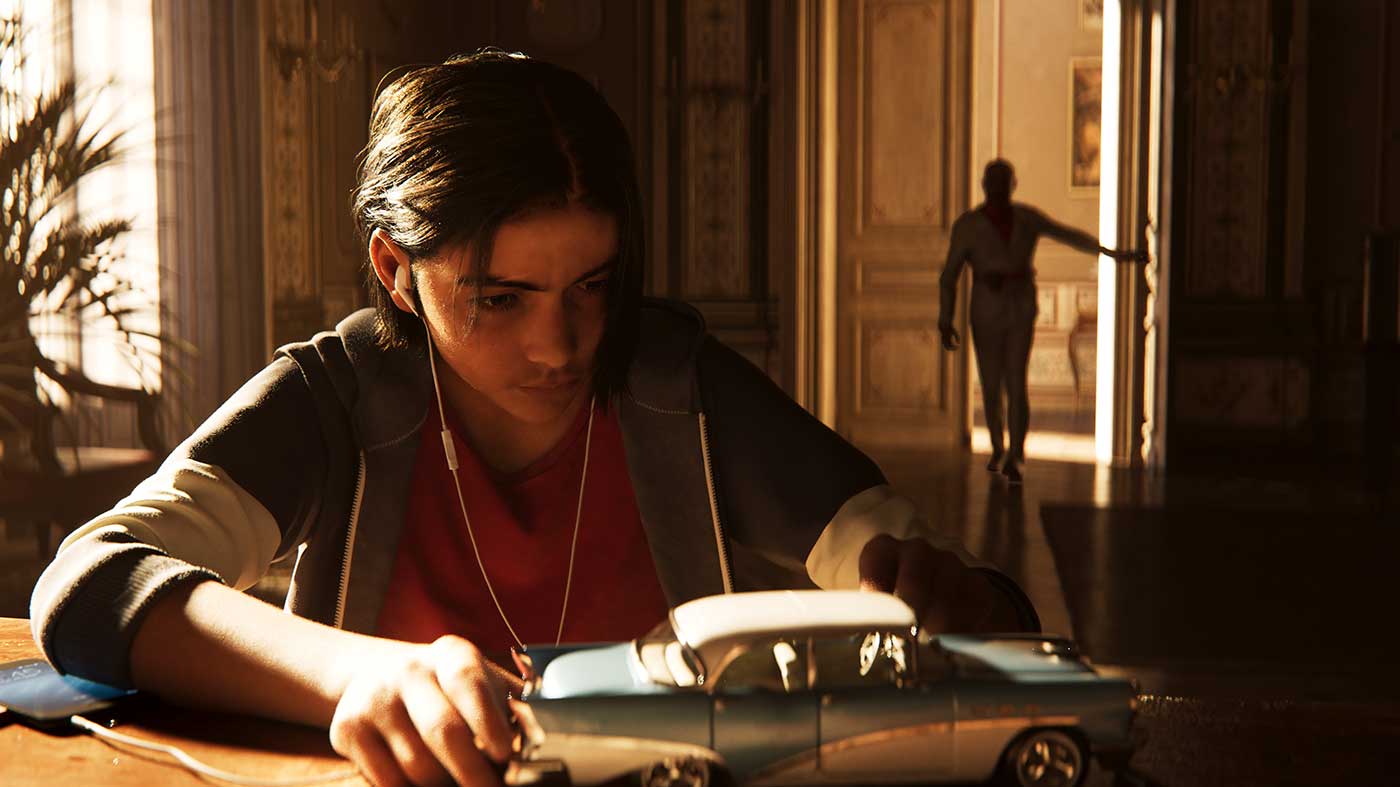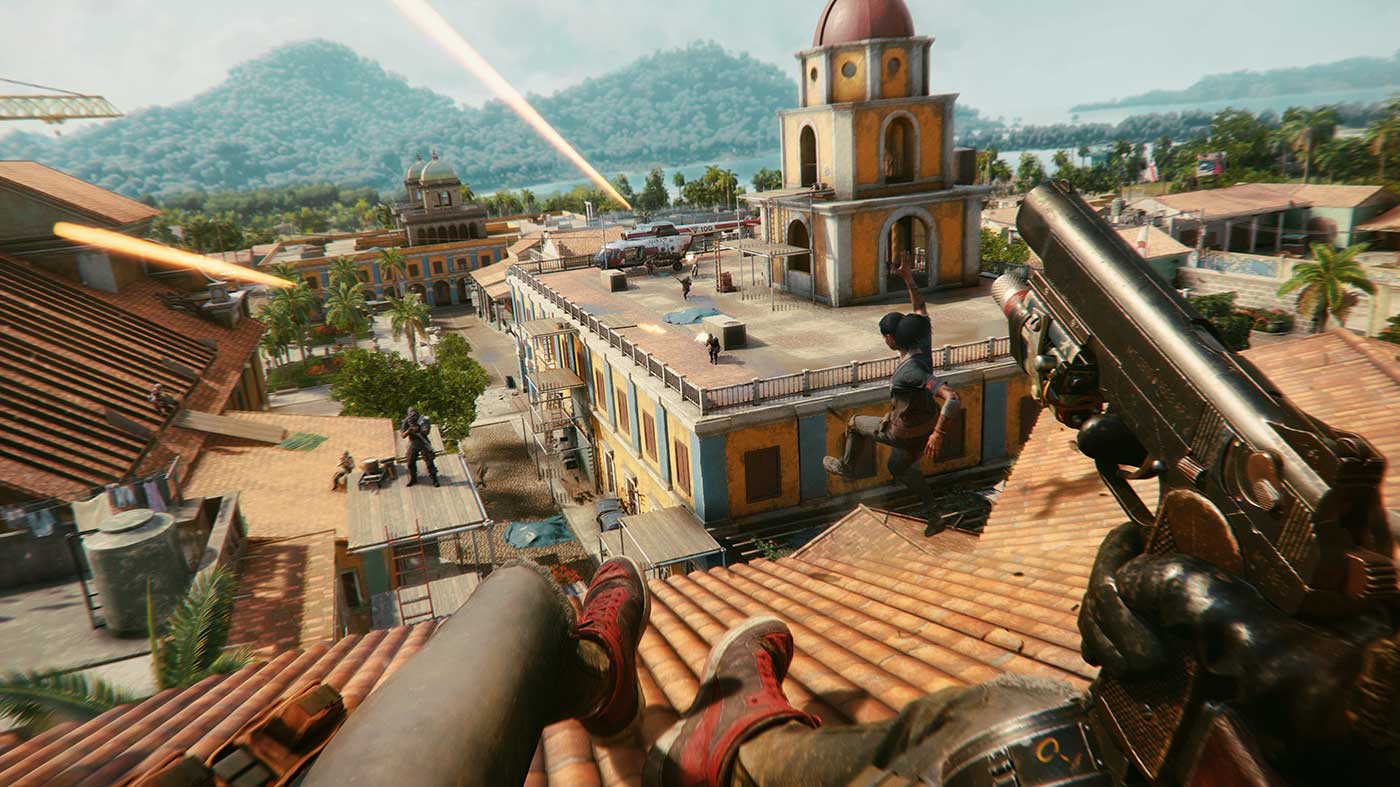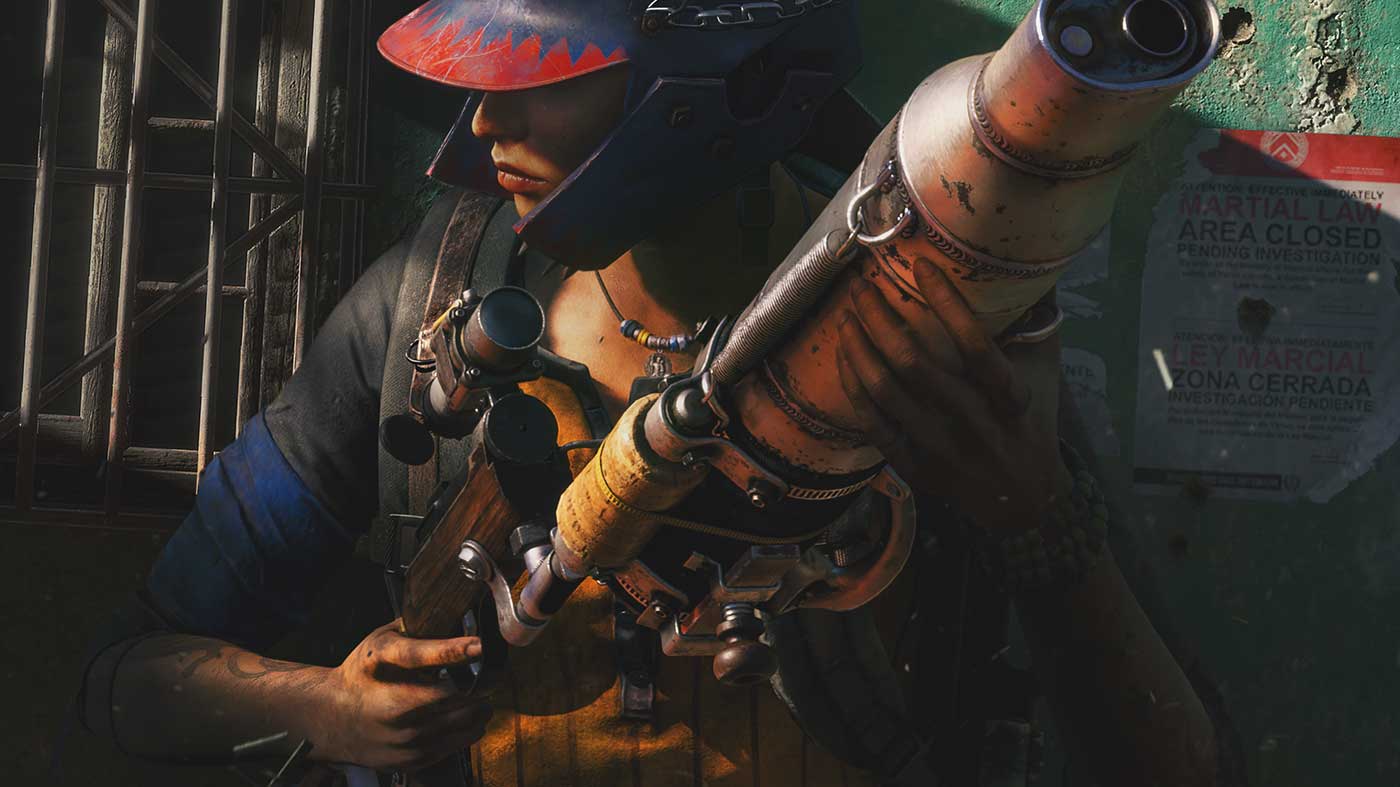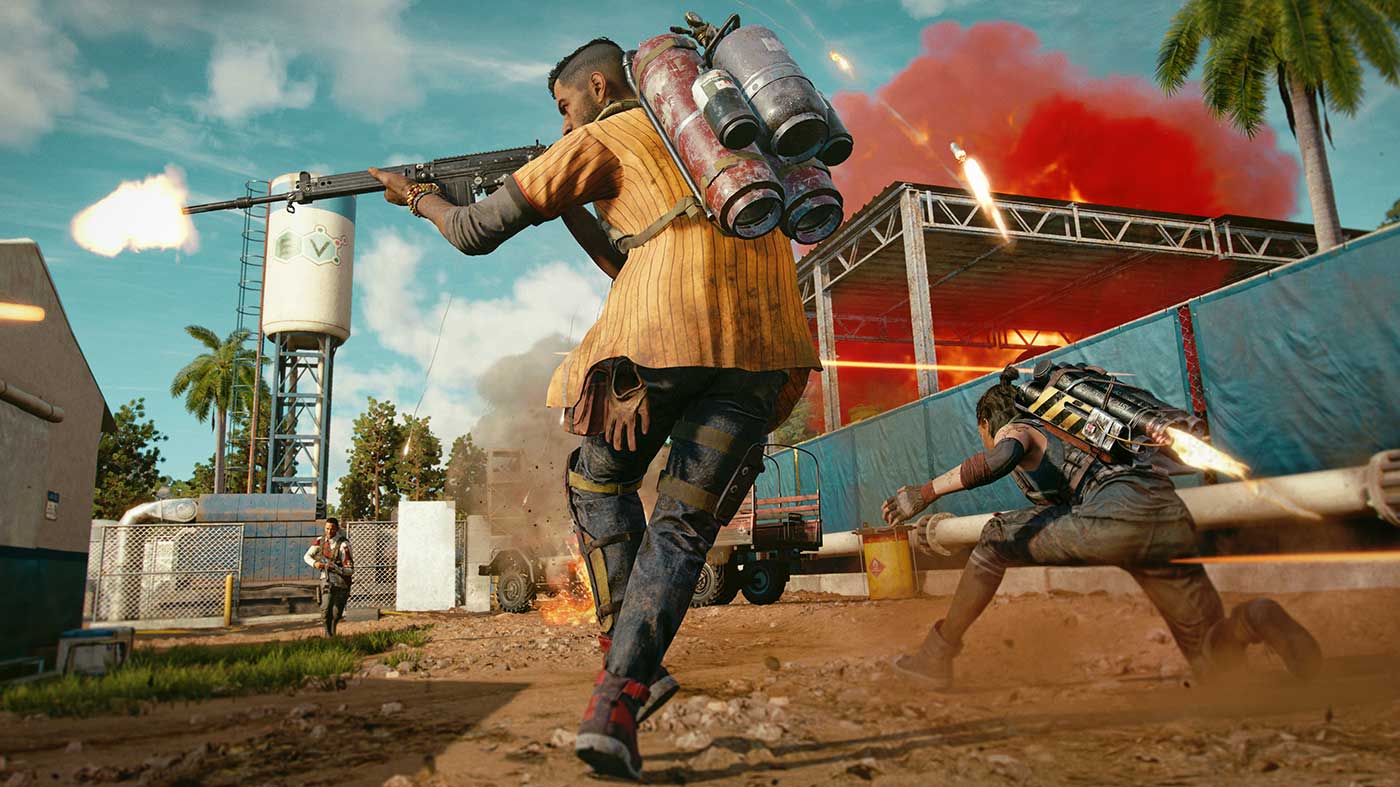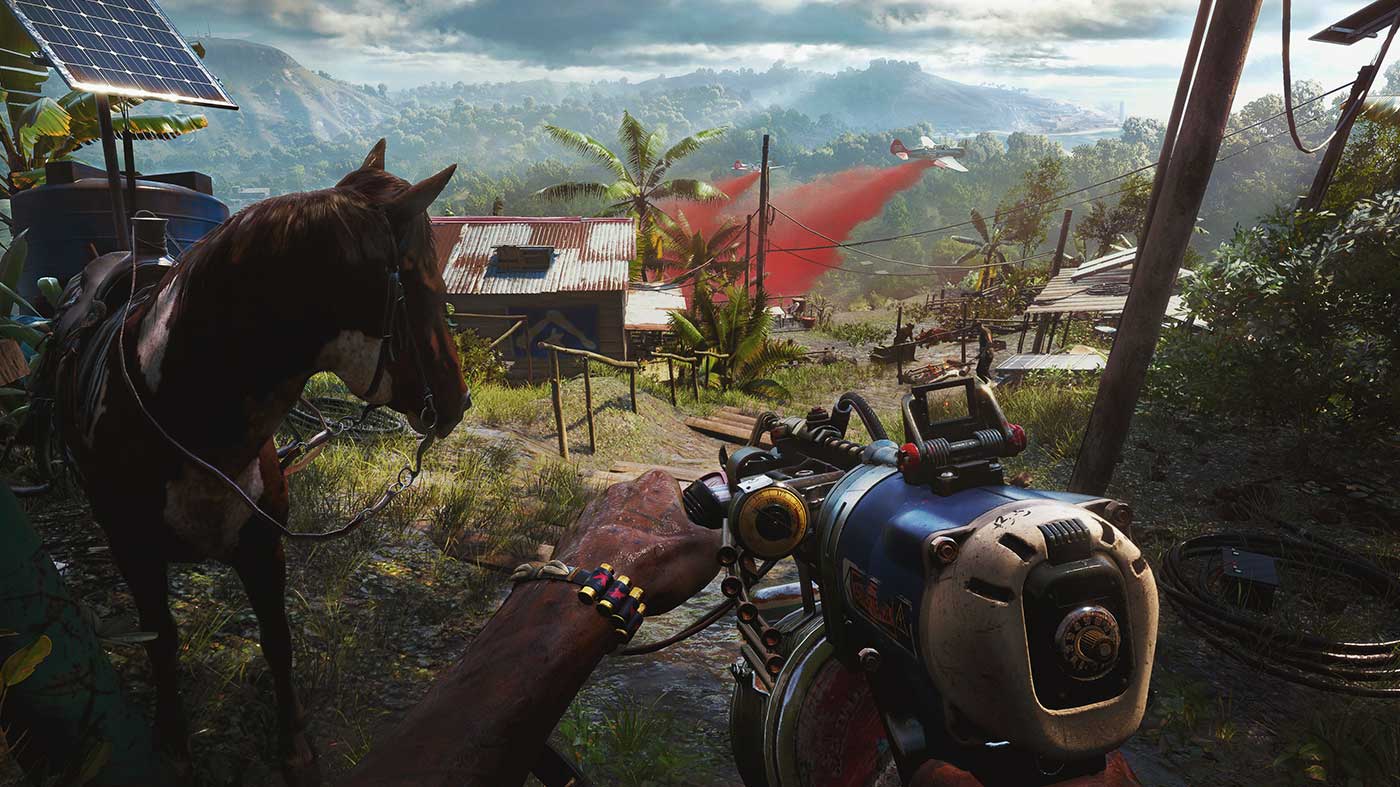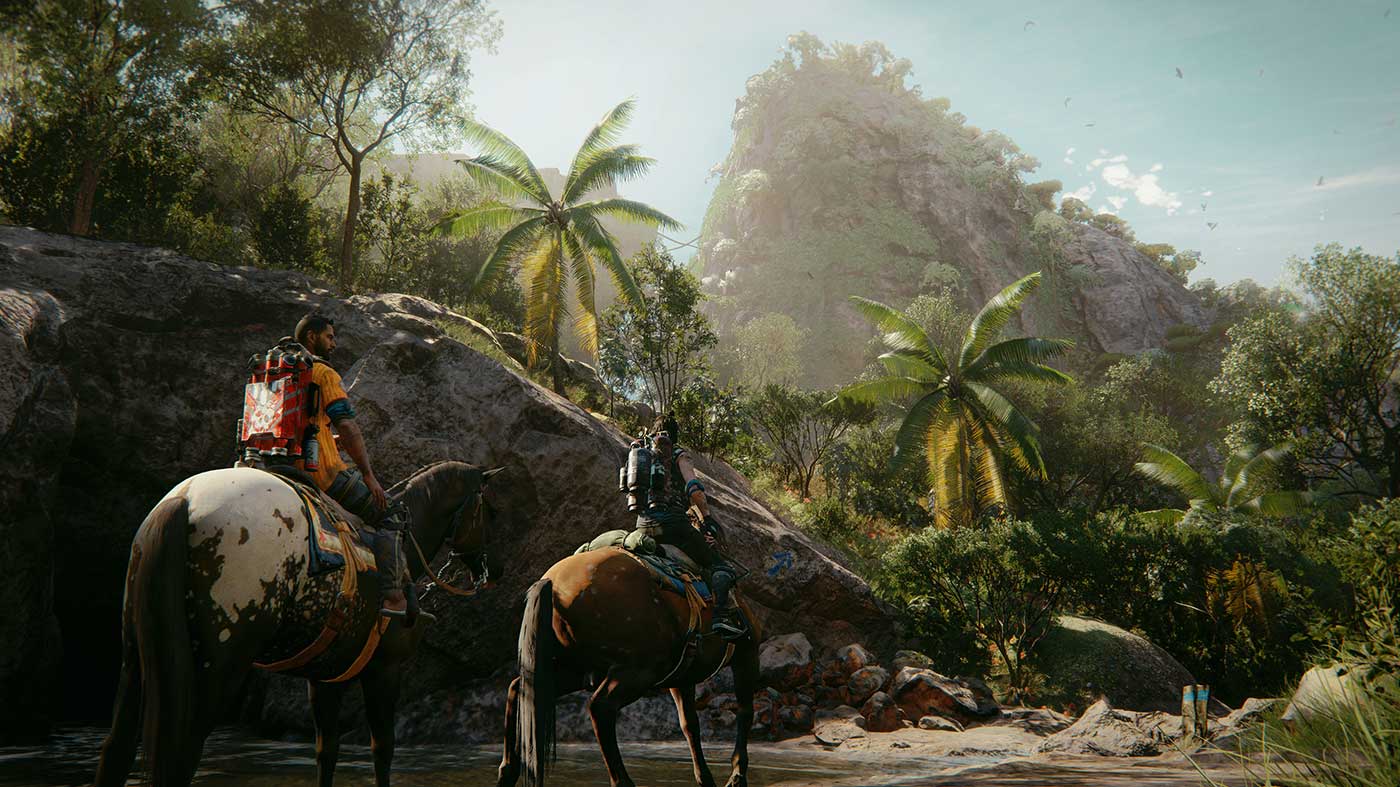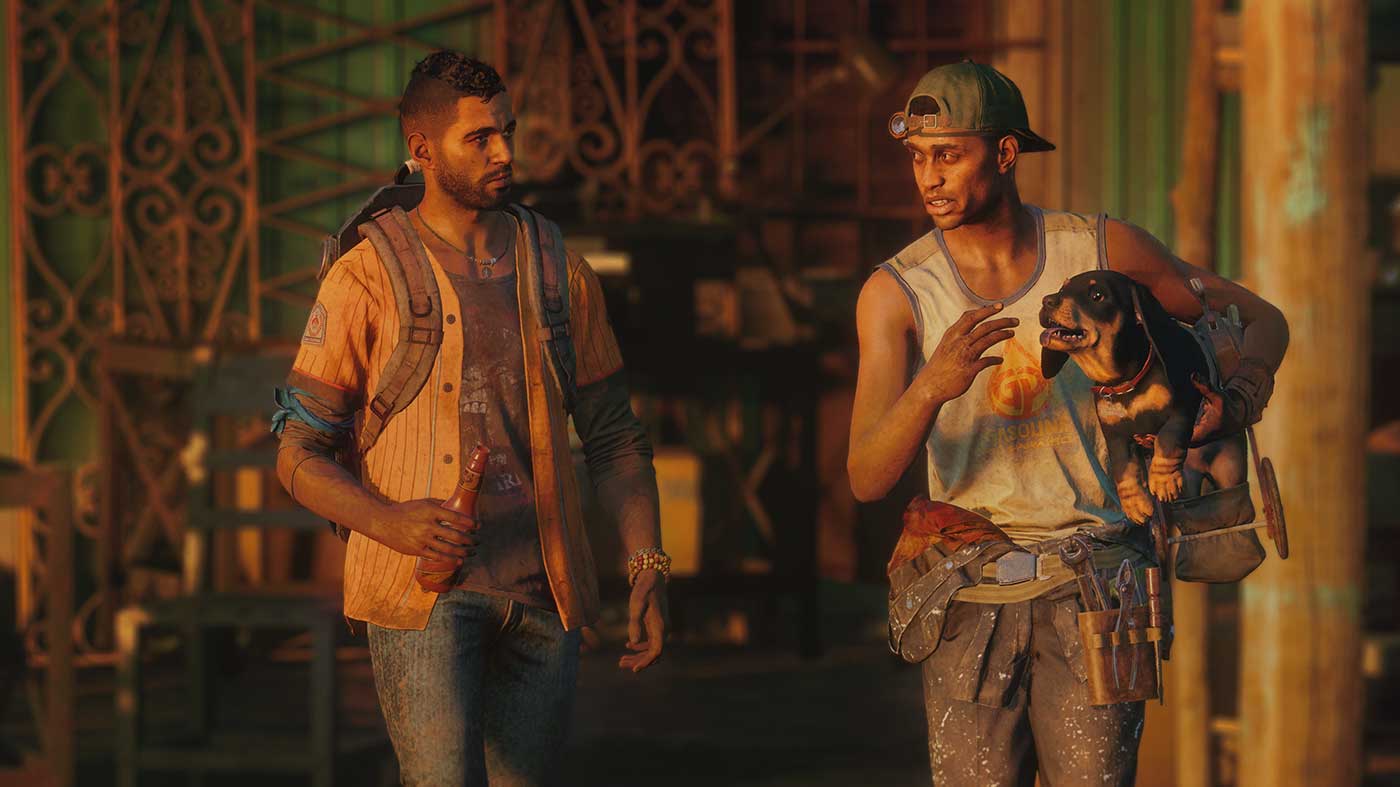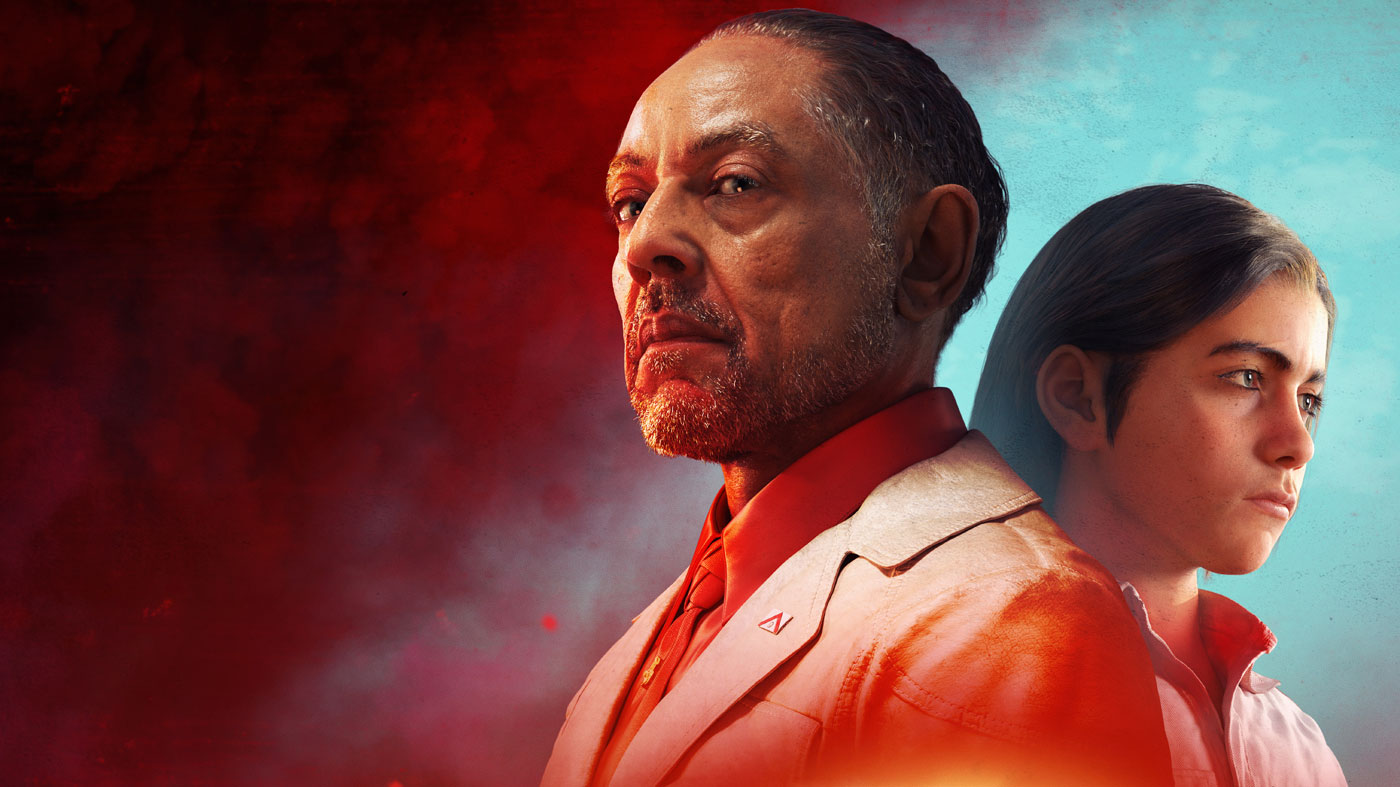It’s been almost three years since a brand new Far Cry has graced our screens and even longer since I genuinely enjoyed a Far Cry game. Far Cry 6 is a return to form in many aspects for Ubisoft. It brings back the exotic locales that I enjoyed from the earlier games while also doing its best to implement so many lessons learned from 5 and New Dawn. The result is quite possibly one of the best Far Cry games thus far.
Far Cry 6 arguably places more of an emphasis on its plot than any other Far Cry game. This time around, you’ll play as Dani Rojas, a guerrilla soldier fighting to return their fictional, Cuban-inspired nation of Yara to its former glory. In their way is a group of lieutenants led by none other than Antón Castillo, a ruthless dictator who has assumed immense control over the entire island. It sounds like your typical Far Cry story, but Far Cry 6 does things very differently to those that came before it, and while it’ll upset some purists, I think it’s for the better.
That being said, it’s hard not to notice that two different storylines are playing out in an oddly separate way. Almost every scene with Antón and his son Diego has little to do with what Dani is doing until the very end of the story. Both Dani and Antón’s stories are interesting. However, they’re almost so separate that they could easily be from two different tales told in the same world. That being said, both are still compelling, and when they do converge, it does feel satisfying, if not a little bit predictable. I’d be remiss to not mention that both Giancarlo Esposito and Anthony Gonzales do great jobs bringing Antón and Diego to life, even if Giancarlo’s character is erring dangerously on the edge of being a typecast for the actor.
It’s no secret that I’ve been slowly losing interest in Far Cry since Primal. I was absolutely enamoured with the changes and the exotic locales explored in Far Cry 3 and Far Cry 4, but each game after that seemed to step away from what I enjoyed about the games. Far Cry 6 is a return to form. It brings back everything I love about Far Cry in droves – a compelling yet charismatic villain, an exotic locale to explore and chaotic free-form gameplay that gives me the freedom to play how I want. It’s a truly remarkable step up, but it’s not afraid to tinker with the tried-and-true formula too.
The most immediate and noticeable change is the complete removal of the skill tree. A staple in almost every open-world game of this ilk, Far Cry 6 instead offers specific skills and abilities through pieces of gear you find throughout Yara. From the get-go I enjoyed this system because it kept me on my feet – too often, I’d get to the end of a Far Cry game and be unstoppable to the point where there was no challenge. Now, I can go through my gear and choose the best set for the operation I’m taking on. I also found myself being encouraged to switch up my gear much more regularly to find the perfect combo of skills given what I had at any given moment.
I’d had mild concerns that this meant that Far Cry 6 was firmly pivoting to RPG territory in similar ways that Assassin’s Creed Odyssey did after the fantastic Assassin’s Creed Origins. I didn’t feel like this approach would work for a first-person shooter like Far Cry 6, and thankfully this wasn’t the case. Your experience and ranking in Yara will affect the gear you have access to and the strength of the enemies that’ll come after you. However, a headshot is still a headshot. If you’ve got the right equipment or ammo, it’ll still kill someone in one shot. This isn’t Borderlands or Destiny; it’s Far Cry.
The pool of equipment you have to choose from is vast too, but not to the point where it feels auto-generated or like a looter shooter. Far Cry 6 divides its weapons into Standard Weapons, Unique Weapons, and Resolver Weapons. Standard Weapons are what you expect from any game – traditional weapons. You can modify them however you see fit. Unique weapons have a unique look and often a unique perk but can’t be modified as much – though they still resemble most of the Standard weapons you’ll find in form and function.
Resolver weapons are what Far Cry 6 does differently and where a lot of the character lies. Like the Elite weapons from Far Cry New Dawn, these are more chaotic handcrafted weapons that are slightly zanier. From flamethrowers to sniper rifles that shoot cluster grenades to a gun that spins CDs that play the Macarena before launching them at high velocities. There’s a great range of weapons here, and they’ve all got a great sense of humour and are similarly quite upgradeable too. Perhaps the only bad thing about the Resolver Weapons is that they’re so good that I’d be surprised if you’d bother even using the Standard or Unique weapons after kitting yourself out with them.
The other significant new addition to Far Cry 6 is the Supremos. They’re custom-made backpacks that each have a unique ability (think an ultimate in other shooters) as well as many slots to outfit with all kinds of gadgets. Gadgets are what you’d expect from other Far Cry games – from as simple as throwing knives to something as complex as auto-turrets and proximity mines. However, the ultimates themselves are pretty fun abilities that only add to the chaos that we’ve come to expect from Far Cry games.
Some Supremos allow Dani to launch a volley of rockets at the nearest target – a boon for newer players but others are more out there. My favourite not only gives Dani the ability to lay down a loop of fire to her surroundings but a double jump that leaves behind a trail of destructive fire too. Others can emit poisonous gas to brainwash enemies to fight for you or even allow you to self-revive. There’s a wide range of Supremos to grab, and each of them is upgradeable too, once again with mods that will enable you to alter them to fit your playstyle.
If it sounds like there are many upgrades and crafting with Far Cry 6, that’s because there is. But Far Cry 6’s willingness to remain a shooter and not become an RPG means that you can engage in whatever manner you wish. I’m the first to roll my eyes at the first mention of customisation and crafting in a game, but Far Cry 6 does it in a way that feels all-encompassing without feeling intrusive or forcing itself on the player. In short, you can play around with the upgrades or crafting however much you want; if it’s your thing, great. If it’s not, there’s still a solid shooter underneath it all.
I haven’t even spoken about all the surrounding stuff in Far Cry 6 but rest assured, there’s a heap of it. Some might have thought that other Ubisoft games like Assassin’s Creed Valhalla were a bit too long, but with Far Cry 6, there’s a lot to do, but it doesn’t feel too excessive. There’s more typical side quest content – like destroying Castillo’s military installations and smaller self-contained stories from the people of Yara or hunting mythical beasts. There are kookier ones, too – including treasure hunts often framed as puzzles of sorts that lead to cool loot. Even a cockfighting mini-game plays like a legitimate fighting game, complete with ultimate attacks and a roster of ten unique roosters.
While there’s no in-game timer that I can see or reliably work off of, Far Cry 6 is easily the biggest Far Cry game thus far; it’s a solid offering that doesn’t feel too bloated but doesn’t feel like it short-changes you either. If you want to go straight to take on Antón, you can. Still, to do absolutely everything to prepare a bit better, it would easily take upwards of forty to sixty hours, depending on how speedy you are. Full co-op options are also welcome, though I wish achievement and trophy progression through the campaign would work for both players (at present, it doesn’t, similar to previous Far Cry games).
I’ve alluded to previously that I’ve wanted Far Cry to return to more exotic locales after spending two games in North America. Far Cry 6 delivers on that desire in droves. Yara is undoubtedly the most beautiful locale that Ubisoft has ever set a Far Cry in – featuring clear inspiration from the Caribbean but with a bit of a unique spin. The lush jungles, the picturesque beaches, and even Esperanza’s urban jungle are all incredibly inviting and just dying to be explored.
The soundscape is similarly inspired. At any given point, as you walk through Yara, you’ll be treated to a myriad of noises that help sell the idea of this torn nation. Afro-Caribbean music fills the streets of the local villages while loud, bold, and disruptive military propaganda is broadcast across the islands. It’s a great atmosphere, if not a little depressing, given the situation. Pedro Bronfman, who scored Narcos, provides great orchestral pieces for crucial story moments too.
As mentioned previously, in terms of voice work, the star of the show is far and away, Giancarlo Esposito as Antón Castillo. He is menacing, if not slightly typecast, at this point. But worth mentioning especially is Nisa Gunduz, who voiced my female Dani Rojas with a fiery disposition and did a great job at bringing the guerrilla fighter to life.
That’s really what sums up Far Cry 6 – it’s full of life and one of the most earnest distillations of the formula so far.


